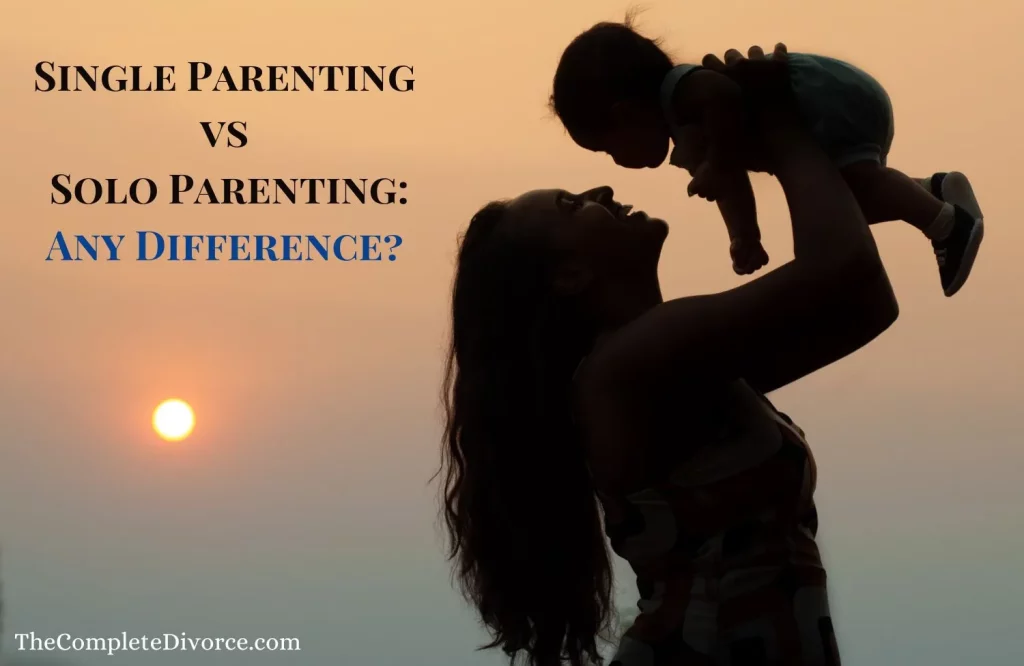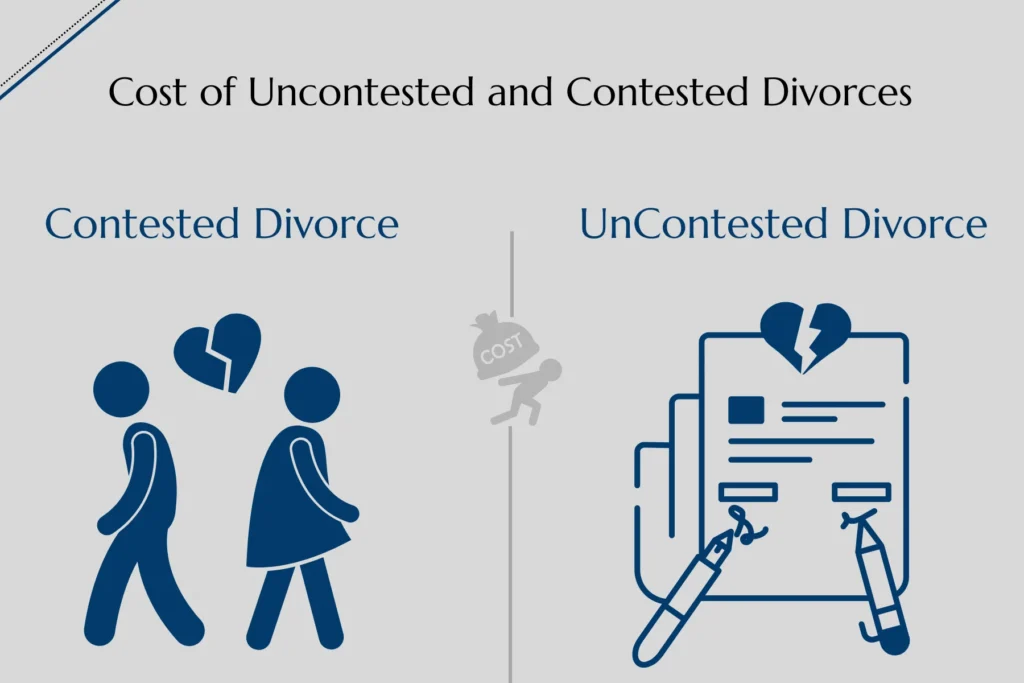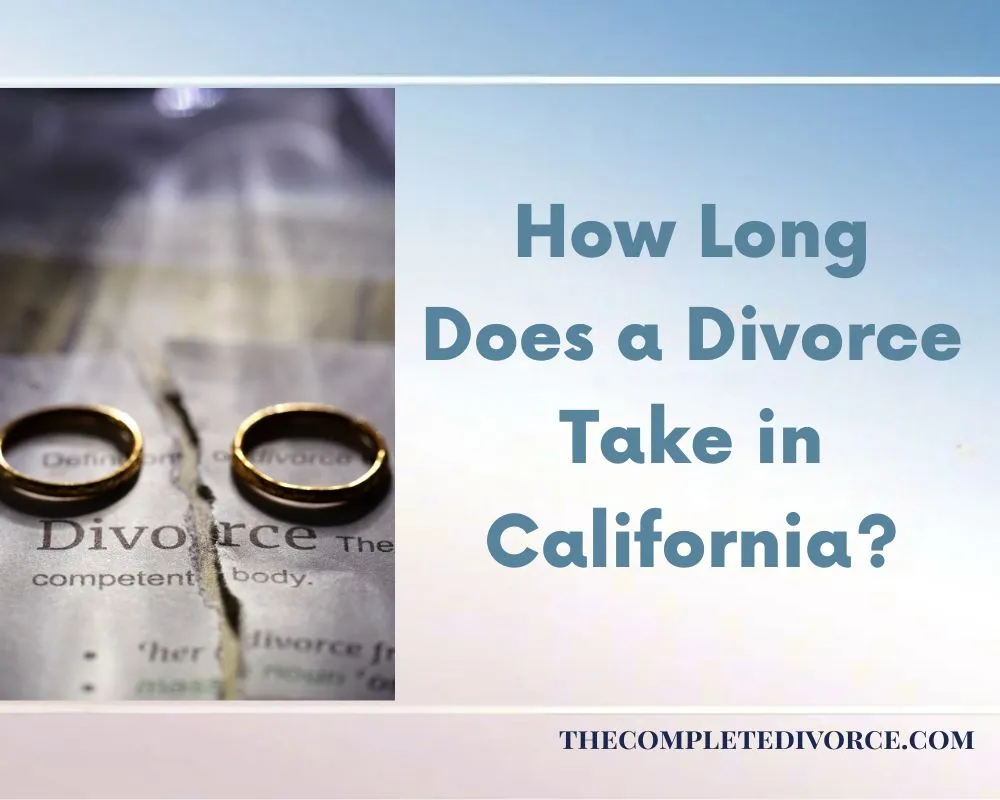
Share
Solo vs Single Parenting: What’s the Real Difference?

Dina Haddad
Founder & Attorney Mediator
I’m Dina Haddad, a family law attorney-mediator in California. I’m so tired of couples not having a process that’s easy to complete their divorce. They are getting lost, wasting time and money, and beyond frustrated with their results.That’s why I created TheCompleteDivorce. I took my successful mediation practice and condensed it into an affordable and winning program.

Share

Solo vs single parenting—what’s the difference? Many assume they’re the same, but they aren’t. With insights from legal expert Dina Haddad, this blog breaks down key distinctions, support levels, and legal implications.
The job of raising children alone brings many challenges, but not all solo parents are without partners, and not all single parents live that way.
One-quarter of American children live in homes headed by only one parent. People mistake raising children alone for single parenting or solo parenting.
When children’s solo parents raise them separately, it differs from single parents who operate on their own. This article explains the differences between solo child-rearing and single parenting.
Divorce can redefine parenting responsibilities. After your separation, do you now take care of your children on your own? You can receive legal expert help in setting divorce arrangements and financial matters through Dina’s online divorce service, The Complete Divorce. For further information visit the site.
Key Takeaways – What’s Coming Next!
- Solo vs. Single Parenting Defined – Solo parents raise children alone without support, while single parents may co-parent.
- Key Differences in Responsibility – Solo parents handle everything alone, while single parents share tasks or receive help.
- Common Challenges Faced – Both experience financial strain, emotional stress, and time management issues.
- Solutions for Better Parenting – Budgeting, emotional support, time management, and legal clarity help parents succeed.
Key Differences
- As solo parents, they must do every aspect of housework and child-rearing by themselves with no other parent contributing to the child’s care.
- Single parents usually work together with their child’s other parent through joint custody rights or shared contribution. While another parent remains available but each parent contributes their time separately.
Single Parenting
Definition: The term single parent means a person who provides responsibility for child care during their custodial time and may share parenting tasks or receive support from the other parent.
- Experts label someone as a single parent who does not have a significant other but the other parent is still involved.
- Both parents may work together to take care of their child but the parents are not together physically in the same space, and typically, not together romantically.
- Married adults who have children, but one of the spouses serves in the military, is often referred to as single parenthood.
Solo Parenting
Definition: Solo parenting, a parent takes full responsibility for raising their child while existing apart from the other parent.
- According to professionals, solo parenting means caring for children without help from another spouse or partner.
- This type of parenting applies mainly to widowed people, parents who chose to raise kids alone, and partners who deserted their families.
- Solo parents have complete responsibility to raise their children since they lack any parenting support.
Kinds of Single or Independent Parents
Different single and solo parents belong to many communities and deal with individual parental hurdles.
- Single Divorced Parent – The divorced parent with custody takes joint care but likely receives money for assistance.
- Single by Choice – A person decides to parent alone through adoption, in vitro fertilization, or the assistance of a surrogate.
- Widowed Parent – A single parent gains full care of their children when their married partner dies.
- Separated but Married Parent – A parent whose married partner does not live with them but they both share legal status as a couple.
- Abandoned or Uninvolved Partner Parent – The parent who abandoned their partner must handle all parenting duties by themselves.
Parents of different parent types need different emotional assistance plus help structures.
Solo Parenting Vs. Single Parenting: Bold Differences Explained
With a general understanding of the between single and solo parenting, we can further develop these concepts. Keep in mind that the general difference is that single parents have another parent that is also supporting their child; while solo parenting, no other parent is involved.
When single parents have ongoing contact with their former partners, they raise their children together, including making decisions or sharing money.
Single parents depend on shared parenting responsibilities or receive backing from loved ones.
However, a solo parent must handle every part of childcare duties since they do not have co-parent support.
These key differences appear in the following table:
Aspect | Single Parenting | Solo Parenting |
Parental Support | May share custody, decision-making | No co-parenting support |
Financial Assistance | Possible child support/alimony | 100% financial responsibility |
Emotional Support | May have family/ex-partner involvement | Primarily alone |
Decision-Making | Shared or independent | Fully independent |
E.g. | Divorced, separated, single by choice | Widowed, abandoned, or by choice |
When parents have this knowledge, they can start building effective support systems and use proper child-rearing resources.

Similarities Between Solo & Single Parenting
Although single parents have different situations than solo parents, they experience common challenges in their lives.
The single parent and solo parent both need money, emotional support, and skilled parenting abilities when they bring up their children as single parents.
- Primary Caregiver Role: Both adults must provide for their children’s household needs while teaching and supporting their emotional growth.
- Financial Burden: Often solely responsible for expenses, with or without external support systems.
- Emotional Challenges: The absence of shared parenting work creates high stress that drains mental strength.
- Limited Time: Most people have problems combining their work schedule with caretaking duties and self-care.
- Seeking Support: They commonly seek assistance from their support networks of family members, friends, and other parents.
Single parents do some childcare together with their ex-partners, and solo parents handle everything related to child care alone.
Assuming single parents have quality co-parents, the solo parents lack that additional assistance, and need to rely on their emotional strength and solid parenting abilities and when possible, outside family and community support.
Challenges and Solutions for Solo & Single Parents
Solo parenting presents tough barriers on its own. Solo parent handles all job duties alone; whereas, a single parent gets some help from an ex-partner.
Examining the problems for single and solo parents will help communities provide better support systems for these families.
Below, we have generally broken down the difficulties and possible solutions to address the difficulties sole and single parents face.
Challenges to Solo Parents
Solo parents face unique struggles due to the lack of a co-parenting partner.
- Financial Strain – solely responsible for all expenses without financial assistance.
- Emotional Burden – The absence of emotional support can lead to stress.
- Time Management – Balancing work, childcare, and personal time is difficult.
Decision Overload – No one to share parental responsibilities with.
Better Parenting Solutions to Solo Parents
- Budget Planning – Prioritize expenses and seek financial assistance programs.
- Time Management – Use childcare services and plan routines efficiently.
- Seek Help – Join parenting communities for guidance and shared experiences.
Challenges to Single Parents
Single parents may have some co-parenting support but still face difficulties.
- Inconsistent Support – The other parent’s involvement may be irregular or unhelpful.
- Legal & Custody Issues – Navigating shared custody or legal battles.
- Work-Life Balance – Juggling job and parental responsibilities.
Solutions for Solo Parenting
- Legal Clarity – Define shared custody agreements clearly.
- Flexible Work Arrangements – Seek jobs with parent-friendly policies.
- Emotional Support – Build strong connections with family or support systems.
- Parenting Strategies – Utilize co-parenting apps for effective communication.
To support their children well, both solo and single parents need resilience and good skills at planning, plus dependable relationships.
Bottom Lines
Each form of parenting involves different difficulties and duties. Single parents can have parental involvement and help with money, while they must take care of everything themselves.
Knowing how solo parents differ from single parents can help people get the necessary assistance to handle duties and create a solid environment for their kids. Having good people around and bounce-back traits makes for better child-rearing results.
Getting legal and financial assistance makes both solo parents and divorced co-parents deal with challenges more effectively.
Dina Haddad, at Families First Mediation, offers child support and custody mediation to assist parties in figuring out the right custodial plans. Book a free consultation with her.
FAQ
What is the legal definition of solo parenting in California?
Solo parenting legally refers to raising a child without any support from the other biological parent—emotionally, physically, or financially.
What is the difference between a single mom and a solo mom?
A single mom shares child-rearing with the other parent plus gets financial support, yet a solo mom handles parenting single-handedly.
What is considered a solo parent?
Complete responsibility for their children as a solo parent status when the other parent is absent from the child.
Can you be a single parent without being a solo parent?
Yes. Single parents may co-parent or receive support from the other parent, which is not the case in solo parenting.
What qualifies someone as a single parent?
A single parent is a parent that raises their child, physically separated from the other parent, but the other parent is still involved, either with custodial or financial support.





